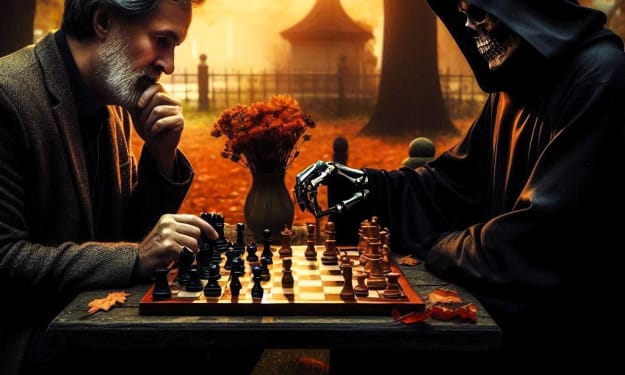Unveiling Reality
A Journey Through the Depths of Knowledge

Once upon a time, in a world filled with curious minds, there was a burning question: "Where are your fingers?" It seemed like a simple inquiry, but it led to a journey through the intricate corridors of knowledge.
You might think, "Well, I know where my fingers are. I can see them, touch them, and feel them." Our senses, those remarkable tools, gave us the power to explore the world. But there's more to our senses than we usually think. Beyond the classic five senses, there's a whole array of others, like kinesthetic sense and proprioception. They're what the police check during sobriety tests, helping us understand where our body parts are in relation to each other without having to look or touch them.
These extra senses reveal that we have far more than the traditional five. However, our senses aren't flawless. They can deceive us with optical illusions, audio tricks, and even tactile illusions. Ever tried turning your tongue upside down? If you have, here's a fun experiment: run your finger along the edge of your inverted tongue. It feels like your tongue is on the wrong side, which reminds us of the limitations of our senses, our only tools to bring the world into our minds.
The study of knowing, known as Epistemology, delves into how we determine what's true. Plato, a wise philosopher, said that true knowledge is something we believe and have a good reason to believe. These reasons might be rational or irrational, backed by proof or not, but don't assume that proof equals truth.
Fortunately, there are things we can know without seeking proof, things we can deem true through reason alone. These are known as a priori knowledge. For instance, the statement "all bachelors are unmarried" is a truth you can discern without a survey because that's how we define the term "bachelor." Of course, you need to understand what "bachelor" and "unmarried" mean in the first place. But how do you really know? Functionally, where does knowledge reside in your brain? What makes up memories?
While we're still a long way from answering those questions fully, research suggests that memories aren't tucked away in single locations in the brain. Instead, a memory is a complex network of relationships among countless brain cells, called neurons. Long-term potentiation (LTP) plays a crucial role in forming memories. When one neuron repeatedly stimulates another, it strengthens their connection, creating a lasting memory. Memories are like forests of firing neurons, intricate patterns representing moments in our lives.
So, how much can your brain store? The best estimate suggests about 2.5 petabytes of information, equivalent to continuously recording a TV channel for 300 years. It's an immense capacity for skills, facts, and experiences.
But then comes the big question: is the world real, or are we trapped in an approximation? The theory that the sun revolves around the Earth once seemed accurate because it made the sun rise every morning. Yet, we later discovered our understanding of truth wasn't necessarily true. Can science or reason ever conclusively prove that the world beyond our minds is real, that we don't live in a simulation like in "The Matrix"? No, your mind is the ultimate judge, even when using scientific instruments. Everything depends on and is created inside your brain – an idea known as the egocentric predicament.
Charles Sanders Peirce distinguished between reality and the "phaneron," the world as filtered through our senses and bodies. To speak with certainty, you live in your phaneron, not reality. Some even believe only they exist, and everything else is a creation of their mind, known as solipsism. Others subscribe to realism, believing the outside world exists independently. But the truth remains elusive.
Martin Gardner, a great source of mathematical magic, leaned toward realism for its convenience. But even he admitted that ultimate mysteries, like the nature of reality, elude us, saying, "How should I know? I'm not dismayed by ultimate mysteries."
This brings us to the wisdom of cats. Cats may not understand keyboards, but they know they're a fun place to be. Similarly, we may never understand all the mysteries of the universe, but exploring them is a thrilling and enlightening journey. So, as we wander through these questions, remember, it's the journey that matters. It feels good.
About the Creator
Healty Life
I have a deep passion for writing,If you enjoy my stories, please show your support by clicking the heart icon, sharing your thoughts in the comments, or even making a contribution. Your pledge is greatly appreciated!






Comments (2)
So thoughtful of you, you can also join my team and subscribe for free.
Awesome and interesting information in your article!!! Loved the read!!!🩷🩷💕